| Register by scanning the QR code below or going to https://go.umd.edu/IWM |

Topics:
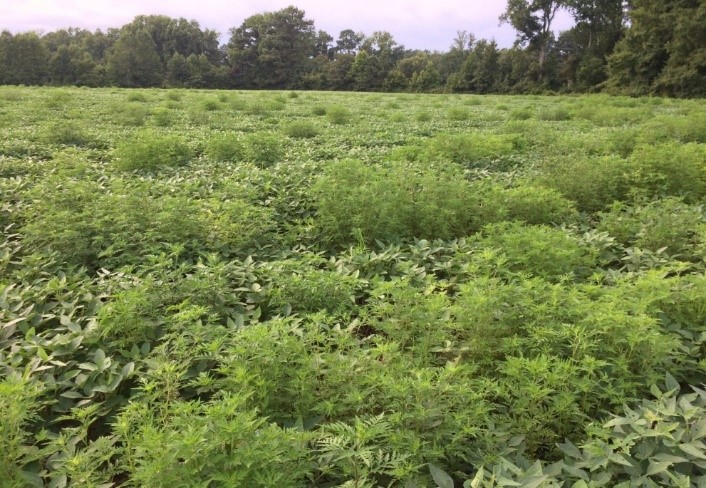
CCA credits will be offered
Free lunch to start or end the program!
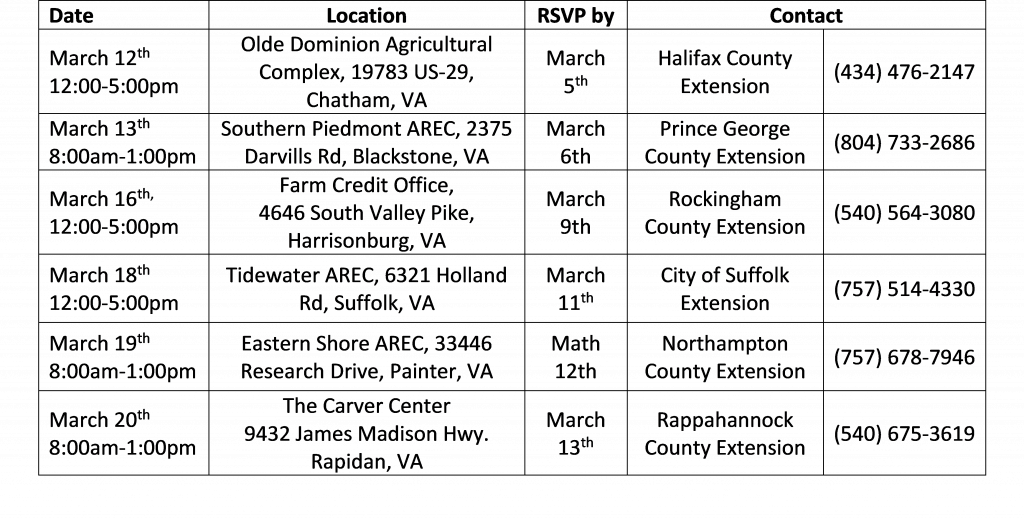
If you are a person with a disability and desire any assistive devices, services or other accommodations to participate in this activity, please contact the Extension office listed above or TDD* during business hours of 8:00 a.m. and 5:00 p.m. to discuss accommodations 5 days prior to the event. *TDD number is (800) 828-1120.
Virginia Cooperative Extension programs and employment are open to all, regardless of age, color, disability, gender, gender identity, gender expression, national origin, political affiliation, race, religion, sexual orientation, genetic information, veteran status, or any other basis protected by law. An equal opportunity/affirmative action employer.
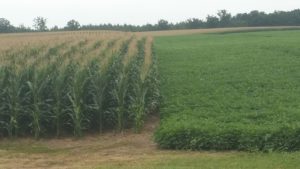
The 2020 Northern Neck Crops Conference will be held Thursday, Jan. 16 at the Cobham Park Baptist Church, 13829 History Land Hwy Route 3, Warsaw, VA 22572. This year’s conference will include pesticide certification training, updates from FSA, NRCS, and SWCD, and several Specialists and Agents from Virginia Cooperative Extension that will cover a wide variety of topics. We look forward to seeing your there for a great day of learning and interaction with the experts. Lunch will be provided. Agenda detail are below.
Full Attendance to the conference has been approved for Private Pesticide Applicator Recertification in Category 90 & 91, and Commercial Categories 1A, 10, and 60. The conference has also been approved for 1.0 Virginia Nutrient Management CEU and 4.0 CCA-CEU credits.
9:00 – 9:05 Welcome – Trent Jones, VCE – Northumberland & Lancaster
9:05 – 9:50 Using Cover Crops for Weed Control – Michael Flessner, VCE – Weed Science Specialist
9:50 – 10:35 Market Update Robert Harper, Virginia Farm Bureau -Grain Division Manager
10:35 – 10:40 Irrigation Resources – Julie Shortridge, VCE – Biological Systems Engineering Specialist
10:40 – 10:55 BREAK – Please visit with our sponsors!
10:55 -11:40 IPM Updates – Sally Taylor, VCE – Entomology Specialist
11:40 – 12:35 Weathering the Storm: How to Cultivate a Productive Mindset – Jeremy Daubert, VCE – Rockbridge County
12:35 – 1:15 LUNCH
1:15 – 1:20 Program Updates – Scott Hammond, NRCS – Soil Conservationist
1:20 – 1:25 Program Updates – Brandon Dillistin, NNSWCD – District Technical Manager
1:25 – 2:15 Corn and Small Grain Production Update – Wade Thomason, VCE – Grains Specialist
2:15 – 2:30 Break & Evaluations
2:30 – 3:00 Legal Updates – Robert Christian, Pesticide Investigator – VDACS
3:00 – 3:30 Safety Updates – Trent Jones & Stephanie Romelczyk, VCE – Northern Neck
3:30 – 3:40 Wrap Up & Paperwork
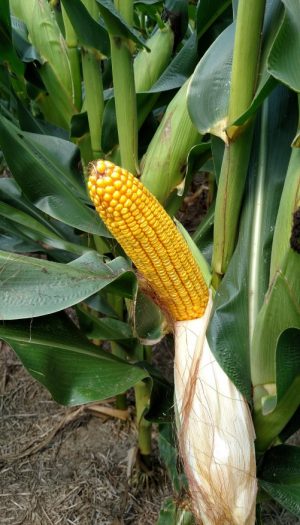
The 2020 Five County Agricultural Conference will be held Wednesday, Jan. 15 at the King William Ruritan Club Building, 156 Ruritan Lane, King William, Virginia 23086. This year’s conference will include pesticide certification training, updates from FSA, NRCS, and SWCD, several Specialists and Agents from Virginia Cooperative Extension that will cover a wide variety of topics, and precision agriculture round-table discussion. In addition, you will be able to get your dicamba herbicide certification with training being offered by Don Cline of BASF. We look forward to seeing your there for a great day of learning and interaction with the experts. Lunch will be provided. Agenda detail are below.
Full Attendance to the conference has been approved for Private Pesticide Applicator Recertification in Category 90 and Commercial Categories 1A, 10, and 60. The conference has also been approved for 1.5 Virginia Nutrient Management CEU, 2.5 Integrated Pest Management and 1.5 Crop Management CCA-CEU credits.
7:45 a.m. Registration
8:15 a.m. Grain Market Update, Robert Harper, Manager, Virginia Farm Bureau Grain Division
8:45 a.m. Corn Update and Hybrid Selection – Dr. Wade Thomason
9:15 a.m. Break
9:30 am. Soybean basics and Soybean Variety Selection- Dr. David Holshouser, Extension Soybean Agronomist
10:00 a.m. Crop Fertility and Fertilizers – Dr. Hunter Frame
10:30 a.m. Precision Ag Discussion
11:45 a.m. Cooperating Agencies (FSA, NRCS, and SWCD)
12:30 p.m. Sponsored Lunch (Participants not seeking pesticide applicator recertification or Dicamba Certification are welcome
to adjourn following lunch)
1:15 p.m. Dicamba Certification – Don Cline, BASF Crop Protection
1:45 p.m. Legal Update – Robert Christian, VDACS Pesticide Investigator
2:15 p.m. Spill Response Activity – Robbie Longest/Mike Broaddus, Extension Agents, ANR, Essex and Caroline
3:00 p.m. Wrap up paperwork and adjourn
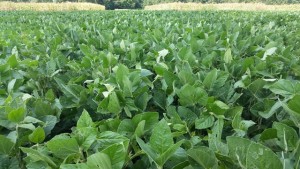
The 2020 Four Rivers Agricultural Conference will be held Tuesday, Jan. 14 at Providence Forge Recreation Center: 9900 Carriage Rd, Providence Forge, 23140. This year’s conference will include pesticide certification training, several Specialists and Agents from Virginia Cooperative Extension that will cover a wide variety of topics, and others. In addition, you will be able to get your dicamba herbicide certification with training being offered by Don Cline of BASF. We look forward to seeing your there for a great day of learning and interaction with the experts. Lunch will be provided. Agenda detail are below.
Full Attendance to the conference has been approved for Private Pesticide Applicator Recertification in Category 90 and Commercial Categories 1A, 10, and 60. The conference has also been approved for 2.5 Virginia Nutrient Management CEU and 2.0 Contact hours for DCR Conservation Planner Re-Certification
9:00 Registration Opens/Meet with Vendors
9:30 Welcome
9:35 Controlling your Drops highlighting dicamba and glyphosate– Laura Maxey-Nay, Hanover Ag Agent
10:00 Pesticide Training – droplet size/playdough- Ed Olsen, Henrico Ag Agent
10:30 Pesticide Legal Update – Robert Christian, VDACS
11:00 2nd round of registration for those not needing pesticide recertification credit
11:15 Dicamba Certification – Don Cline, BASF
12:15 Sponsored Lunch/Meet with Vendors
1:00 Agency updates
1:15 Grain Market Update- Robert Harper, Manager, Virginia Farm Bureau Grain Division
1:45 What I learned from Argentina Agriculture, pest control and nutrient management –Paul Davis
2:05 Corn Update and Hybrid Selection, Dr. Wade Thomason, Extension Grain Agronomist
2:35 Break (visit with sponsors)
2:50 Positioning Your Full-Season Soybean for Maximum Yields, Dr. David Holshouser, Extension Soybean Agronomist
3:20 Making insect management decisions now by purchasing seed for next season, Sally Taylor, Extension Grain Entomologist
3:50 Nematode Panel, various specialists will discuss current nematode control practices.
4:50 Adjourn and paperwork

The 2020 Tri-County Crop Production Conference will be held Tuesday, Jan. 14 at the Carson Volunteer Fire Department on 19806 Halifax Rd in Carson, VA. This year’s conference will host several Specialists from Virginia Tech that will cover a wide variety of topics. In addition, you will be able to get your dicamba herbicide certification with training being offered by Don Cline of BASF. We look forward to seeing your there for a great day of learning and interaction with the experts. Lunch will be provided. Agenda detail are below.
9:00 – 9:05 Welcome and Announcements
9:05 – 9:40 Positioning Your Full-Season Soybean for Maximum Yields– Dr. David Holshouser
There are many things we can do to increase full-season soybean yield, but decisions made before planting are the most important. This presentation will focus on site-specifically positioning your crop to best take advantage of the limiting resources of water, light, and nutrients.
9:40-10:20 Plant disease management – Dr. David Langston
Nematode and disease interaction issues in soybeans. Update on fungicide and seed treatments available for corn and soybeans. Common diseases occurring in 2019.
10:20-10:40 Break
10:40 – 11:10 Update on insect pest management – Dr. Sally Taylor
Review of major insect pests in 2019. Recommendations for preparing for 2020, scouting tips to use throughout the season, and updates on insecticides available for use.
11:10 – 11:40 Small Grain and Corn Update – Dr. Wade Thomason
Review of the latest research in corn and small grain production in Virginia.
11:40 – 12:00 Getting Started with Irrigation and Irrigation Survey – Dr. Julie Shortridge
Irrigation is not used on a wide scale in Virginia. This presentation will introduce our new water specialist and a irrigation survey for growers.
12:00 -12:45 Lunch
12:45 – 1:15 Pesticides in VA update – Robert Christian, VDACS
Update on federal record keeping and worker protection standard. Additional information on changes in pesticide labeling for VA. PPE review for commonly used pesticides. Changes to paraquat labeling, handling, and training.
1:15 – 1:35 Weed control update – Scott Reiter
Roundup resistant common ragweed is common in our soybean cropping systems. There are also 4 different herbicide technology systems in play for the 2020 season. We will cover the options available and the stewardship needed to keep the herbicides on the target crops.
1:35 – 1:55 Cover crops – Mike Parrish
Cover crops have many uses in our production systems. Soil erosion control, soil health properties, weed control, and moisture retention. Presentation will cover results from local cover crop plots and impact on these properties.
1:55 – 3:00 On Target Academy – Don Cline, BASF
This session will cover the required training for using dicamba herbicide in post-emerge applications to Xtend soybeans and cotton. Applicator & recordkeeping requirements, nozzle selection and technology, buffer requirements, weather conditions, and tank mix additives will be explained in detail
Full Attendance to the conference has been approved for Private Pesticide Applicator Recertification in Commercial Categories 1A, 10, and 60.
A series of half-day workshops will be held in Maryland, Delaware and Virginia this winter for farmers interested in learning about the problems of herbicide resistant weeds and how to manage them. Hosted by University of Maryland Extension in collaboration with Virginia Tech and University of Delaware, these workshops are designed to equip farmers with the knowledge to improve weed control on their farms.
Farmers in the mid-Atlantic area are starting to see the impact of herbicide resistant weeds on their crop yields. With many problematic weeds now found throughout the region it is essential that farmers learn the key management strategies to control these weeds.
Sessions will cover integrated weed management tactics; palmer amaranth, common ragweed and marestail control strategies; and developing a weed management plan. There is no charge to attend and lunch will be provided. Pesticide (commercial and private) and CCA continuing education credits will be offered.
Workshop locations and times are listed below. Please RSVP to the respective meeting location to provide an accurate meal count.
February 25th (12 pm to 5 pm) Old Beale Sanctuary, 369 Queen Street,Tappahannock, VA 22560
To register call the Essex County Extension Office: at (804) 443-3551
February 26th (8 am to 1 pm) St. Mary’s County UME Office, 26737 Radio Station Way, Leonardtown, MD 20650. To register call the St. Mary’s County UME Office at 301-475- 4484
March 4th (8 am to 1 pm) Harrington Volunteer Fire Company, 20 Clark St, Harrington, DE 19952. To register call the UD Carvel REC, at 302-856-2585 (ext 540)
March 5th (8 am to 1 pm) Somerset Extension Office, 30730 Park Drive, Princess Anne, MD 21853. To register call the Somerset County Extension Office at 410- 651-1350
March 6th (8 am to 1 pm) Frederick County UME Office, 330 Montevue Lane, Frederick, MD 20712. To register, call the Frederick County UME Office at 301-600- 3576
March 7th (8 am to 1 pm) Chestertown Volunteer Fire Company, 211 Maple Ave, Chestertown, MD 21620. To register call the Kent County UME Office at 410-778- 1661
For more information contact Ben Beale at 301-475-4481, Michael Flessner at 540-315-2954, Matt Morris at 301-600-3578 or Mark VanGessel at 302-856-7303.
If you intend to apply Engenia, Xtendimax, or FeXapan this year, you need to complete the annual dicamba specific training requirement in addition to being a certified pesticide applicator. In Virginia, this training is conducted by the registrants (manufacturers), but can also be completed in another state including registrant training, state mandated training, and state approved training. Both in person and online training is acceptable. Training is not product specific; you do not have to take the training from the registrant of the product you apply.
Make sure to document your training.
Here are links to find a training event near you or complete online:
BASF
Please note that some some events require pre-registration.
The following links are under revision for 2019 but will be useful shortly:
Mississippi State Extension
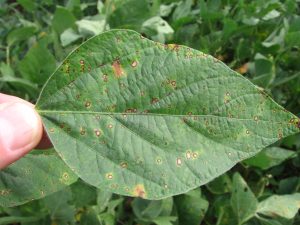
For greater soybean yields, one of the best things that you can do is walk your fields. Many problems reveal themselves during the summer. Actions taken or not taken can be very noticeable. By walking fields, we can see what’s working and what’s not working. Certain problems can be solved, some cannot. For those that cannot be solved this year, we can do better next season by understanding why we have the problem. Therefore, a review of how to diagnose your crop will likely beneficial.
A few years ago, I published “Troubleshooting The Soybean Crop“. Although a little dated, most of the information is still good. This publication will guide you through how to go about diagnosing problems, includes a vegetative- and reproductive-stage outline with lots of photos, and also includes a sample crop scouting and diagnostic form. You can download a view a PDF copy, or contact me – I still have a few hard copies left. By following some general guidelines, one can become quite good at diagnosing problems. Below is a summary.
First, document everything! Memories tend to fade. We often forget or overlook details. You can document by taken notes (many phone apps or iPad/tablets work well for this). Make a recording. Take pictures – this is especially useful when you need help – and send those photos to others.
PRELIMINARY FACT FINDING. You can obtain plenty of information before you even get to the field. Although I call this preliminary (as if you’ve not seen the problem), you may need to go back to the office to refresh your memory of what you did. Information that can be acquired beforehand or back in the office includes: 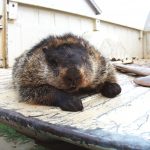
THE FIELD VISIT
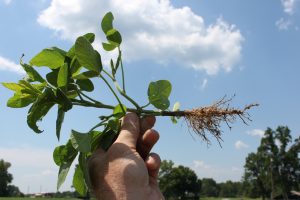
ANALYSIS OF DATA AND FINDINGS
DRAWING A CONCLUSION. Review the facts and data. Eliminate unlikely causes. Validate likely causes. You may be able to drawn a conclusion in the field, but lab analysis may be needed.
FOLLOW UP. Revisit the field. If you took corrective action, did it work? Why or why not?
This is a very rough outline of the guide. Again, if you want a hard copy of Troubleshooting The Soybean Crop, contact me.
8:30 to 11:30am
Southern Piedmont AREC
Field entrance near:
1200 Darvills Road
Blackstone, VA 23824
Google Maps link to field entrance: https://goo.gl/maps/iKZmYnjx7wM2
More information in the flyer: 2018 Weed Management Field Day Flyer